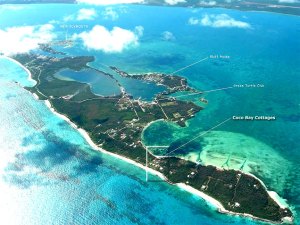Evangeline and Teach
Inspired by an episode in my former life, this is chapter 15 of my current novel ‘Green Turtle Cay‘ written as part of the annual NaNoWriMo write-a-thon. NaNo suggests participants write every day for the 30 days of November and then stretch back langorously and take a long look at what the Muse has let them produce. That’s the theory, anyway.In practice, it works out rather differently. Family, friends, eating, drinking, sustenance, nourishment and a few other of life’s ‘essentials’ go by the board. Friends have been known to fall out over NaNo. Families to starve. Or eat out. Only cats and keyboards remain constant companions. Anybody else with any sense has already taken charge of the situation and is ignoring the solitary writer/novelist-to-be.
Because at the end of 30 days, that’s what has developed. If not a fully-fledged, plot-intensive, character-filled bestseller which will wow the editors, agents and publishers for years to come, at least the bones of something like it.With five days to go, I should be pulling in the strands which draw my novel to a close, but instead I am procrastinating — because that’s one of the virtues of NanoWriMo. Chris Baty in the San Francisco Office of Letters and Light says it’s all part of the learning curve. So why aren’t you doing it, too?
EVANGELINE AND TEACH
Evangeline was her English Island name.
Back home in French Guinea she had had another name. She was forbidden by her own sacred tradition to speak it in this life, to reveal who she had been in that former time.
Daughter of the tribal chief, she had their trust, she would one day have ruled when Father was too old to lead. And she wondered if that day had come when Father welcomed the strangers to their shore, gave them food and wine, made them honored guests at his table and provided concubines for a night’s rest in their guest villa overlooking the shore.
Out in the Bay, these French mariners described such a ship. A barque made out of full-grown oak trees that they had in their homeland, not like the sappy fig they grew in Guinea. So large they said, one tree could create four walls of the villa alone and leave wood to spare for roofing. And Father was taken in. He saw something out in the Bay — two vessels, she learned later— that were so foreign to his vision, his mind would not allow him to see such alien craft. So he believed totally what the strangers said and believed them when they said they were bedecked with color streamers, paper lanterns. and that they had only come ashore to replenish their provisions of milk and honey and butter and ale. They even said, if the village were willing to trade with them for such a meager request, they would show them international trawling techniques, practise a little fishing in their offshore fishing grounds. Their barrels had run low, they needed to stock up before heading back into the fray. They would be on their way on the morrow, back on the high seas in pursuit of the foreign English who were attacking their borders.
And Father had believed every word. Father had offered them the prize guest seats next to him at the High Table for the feast which all villagers shared to celebrate such an unusual arrival in their rich fishing grounds. Father had given them the sleeping tent reserved only for honored guests, a canvas awning which few others deserved to use. And two concubines each for the foreign sea captain and his officers. The captain said the rest of his men would remain on board. It sounded reasonable. None of the villagers had any reason to suspect. Father usually did the best for the tribe and trade was always beneficial for everyone.
It would be a long night for Father, so Evangeline went to her own quarters earlier than usual, as she saw her presence was not needed, save to be introduced formally to the French captain. He looked and sounded polite. She had no suspicions on that score. Besides, back then, she had no knowledge of what was going on on the high seas except that two European nations were at war and that didn’t usually affect the dominions of the African continent. Their sea traffic came from neighboring tribes. The farthest travelers came was from shores of the southern desert.
So it was from a deep sleep and a vivid dream that she was awakened in the middle of the night — she remembered the moon had just reached its horizon point and was about to set — so a couple of hours before dawn light would flood the land and wake the tribe. In tribal medicine, it was known as an inauspicious time.
It had been by stealth they came upon her, her family, her brother and of course Father, the Chief. They tied them together with their hands behind their backs and herded them like cattle down to the jetty where their simple outriggers were the only craft to be seen. Then a huge row boat, wider and longer and more massive than any she had ever seen, rounded the end of the pier and nudged in to shore, where the small harbor afforded shelter. Twenty-one of them were poked and pushed and hustled on board, made to sit in groups on heavy trusses that served for seats in the hull as the vessel was rowed silently out of the harbor. None of the tribal elders heard a sound. Her mother, nursing her youngest, only two seasons old, and with her younger sister in the same bed, had not awakened. Had she known she would never see them again, that vision would have given her pain. As it was, much worse had since happened, so remembering her parental home as it was before the disruption sometimes gave her a moment of joy in her grief.They were taken as slaves. The European gentlemen with their northern manners and their white faces and blond beards and fancy uniforms were nothing more than thieves. She was rowed out into the bay with twenty other young people and Father. None of them knew why. Then, as they neared the enormous vessel, Father stood up to look.
Then and there they slit his throat and threw him to the waves. At the moment he stood up to look into the decks of a ship he had never seen in his entire existence before, not in reality and not in picture books left by other traders — as he rose to help his people out of the low craft and into this mystery ship — they took his life.
He’d been tethered like the rest, but their purpose was finally revealed. He had merely been taken from the village to ensure silence and cooperation. Out here in the bay, as they saw the vessel prepare for a long voyage into equatorial winds and currents, he was an old man, a nuisance, a hindrance.
Her mind reran the event a thousand times. She watched him rise from an unaccustomed positon in the bottom of the boat and stand proud as they neared the tall galleon. His chiefly stance was brave. He still believed he could rescue the situation. That’s what she meant about Father having outlived his time. His belief in the good of Man had been betrayed. It was perhaps the Great Spirit’s way of showing him his time on earth was over. Without a word, without salutation, greeting, or any show of respect, one of the crew stepped forward from his position at the oars. He had a cutlass in his hand. He didn’t even pretend to hide it. Even before he reached Father, Evangeline knew what was going to happen.
She called out ‘Father’, but her voice was unheard. He still believed he was about to be raised with ceremony into this magnificent ship with rigging above reaching to the night skies, and ropes thrown below to raise them up. He believed he was going on board. That’s how he was deceived. The crewman took him from behind, held his chained arm in his left hand and slit his throat with the cutlass in his right. There was no sound. Father collapsed in the bow of the boat and the other young occupants knew there was now no hope for them.They were taken then, one by one, shuffling past the silent body of the man who had been their Chief, up a shaking gangway over the side and on to the main deck of the Guineaman. Evangeline had a momentary impression of the French ship’s enormous size — it rose even more powerfully up towards the prow where wheelhouse, rigging and full sail added to its grandeur. This was indeed a trader for a long voyage. The rumors had truth. There were far off lands where young people and children were spirited away never to return to their homes or their culture or their families. Always fated to watch the sun rise on another continent, over a different sea or, for some, never to see the sea ever again.
Now, years later she knew this to be a familiar story. She’d heard of others taken like her friends, her cousins and brother from the sea, overland to foreign places where the earth was dry and crops starved from lack of water. They were made to work, to harvest food not for themselves, but for another man. The man who controlled them operated what was called a plantation, where many had been taken to live in vile quarters with none of the gentle trappings of noble life in a village a million miles away on the other side of the world.
Another life, another time, another earth, another past. A dream ago — when she was young.
Years on, in another future, Evangeline learned that her fate had been blessed compared with the stories she heard of those slaves who were sold to plantation owners in South Carolina, Georgia and Virginia.
Back then, twelve days out, twenty miles off the South Carolina coast, Evangeline’s ropes were untied. Captain’s orders. They were to come forward from where she and four friends were held in the mate’s cabin up to the foredeck where Cap’n stood at the prow: to negotiate, he said.The hand that untied them and pushed them gently up the companionway to where the Captain stood under the forward mainsail, was the same young hand who had stolen meat to feed her when rations ran out after their first week aboard. They were made to stand beside the ship’s bell: La Concorde, she read on its heavy bronze lip. He whispered as he pointed to where the captain and navigator scanned the horizon with a hand telescope.
‘There is another ship. The captain thinks they mean to board us. You will have to stand forward on display, in case they mean us harm.’
‘What d’you mean?’ Evangeline would remember his answer to her dying day.
‘Captain says it is Teach. The pirate. You will be taken prisoner and we shall go free.‘
Of course the hand had not been correct. There was something about La Concorde that pleased Edward Teach. He needed a new flagship, or he was tired of his old brigantine. Or he had a new girlfriend who wanted a ship. It could have been any one of those reasons. Teach was indeed a brigand and a thief, plundered the rich to feather his own operation. But in the Islands he was known for picking on slave ships because in releasing them, in some way he felt he paid his debt to society for robbing those powerful Europeans who’d banished him from serving as a genuine officer in the British Navy. Queen Anne would suffer for ignoring him. He had become a presence to be reckoned with. He would soon have a fleet of ships which would rule the seas between Bermuda, the Bahamas and the South Carolina coast.
Evangeline stood tall. She felt no fear. She’d heard of the pirate and thought life as a free woman in the islands might not be as wonderful as life had been back home — long ago when Father was alive — but preferable to that working long hours in the dust for an alien white lord. At least they said in the Islands you could work your own property, find a new love, build a new life in a wooden shack and, if the fates favored her, she might even meet the great man Teach himself.
She too had heard the rumors. How he burned firecrackers in his beard and hair to terrorize the crews of the ships he boarded and plundered. But those were merchant ships, carrying gold and jewels and with possessions in the hold belonging to the rich, bound for a new life in Carolina, Virginia and even farther north on that great continent. That’s where the British were fighting for their colonies in America. It was a land for the white man. The black man must find his own future elsewhere. Some day they, too, would have their own empire and way of life — remember the beauty of the old country, the old life and old traditions.For now she would remain calm. She would allow her fate to unfold before her. If this was indeed Blackbeard’s ship, she would go along with her fate and ask him for mercy.
Looking back on that night in the balmy waters off the Carolina shore, she had no way of knowing how her life would end up in the Bahama Islands, how gentle would be her fate. How kind would be the pirate captain, and how fortunate her life was to turn out.
Evangeline sighed and added another row of stitching to her sampler. She raised a glass of pomegranate juice and stretched her eyes to the horizon. Even Blackbeard was gone now. But those had been the days. She smiled, picked up her fan and cooled her aging brow.
©2010 Marian Youngblood
November 25, 2010 Posted by siderealview | authors, fiction, history, novel, writing | Africa, America, Bahamas, barque, beard, Blackbeard, brigantine, Carolinas, cutlass, Edward Teach, equatorial, Evangeline, firecrackers, French Guinea, frigate, galleon, Green Turtle Cay, Guineaman, high seas, La Concorde, mainsail, man-of-war, NaNoWriMo, ocean, pirate, plantation, Queen Anne, ship, ship's bell, slave-ship, slaves, sloop, Virginia | 3 Comments
About
Lots of writers use a nom de plume to distinguish between their personae – it’s the way publishing works. Blogs, too. What choice, what abundance: we can be guided by all our Muses and still retain our integrity (who doubts it?)if we are prone to take one persona more seriously than another. For this blog I become this particular blogger because the material is time-sensitive; the research is all coming together now and our way forward is mapped. That said, it’s up to us whether we take the information and run with it.
Top Posts
YoungbloodBlog Stats
- 116,928 hits
-
Latest posts
- March In Like a Lamb,Out Like a Lion:Does Ancient Rhyme Predict More Climate Crises or Solutions?
- February Packed Full of Festivals Both Ancient & Modern—an Unholy Cultural Mix North and South of Equator
- Stepping Ahead into 1st Quarter of 21stCentury While Looking Back to the Goode Olde Days
- Sun’s Coronal Hole-Combo-Climate Crisis Make for “Interrresting” December Human Conditions +Airliner Surprise
- November Remembered for ‘Gunpowder, Treason & Plot’:420yrs Later Have We Learned Anything?
RSS Feed
astro
Youngblood BlogArchives
- March 2024
- February 2024
- January 2024
- December 2023
- November 2023
- October 2023
- September 2023
- August 2023
- July 2023
- June 2023
- May 2023
- April 2023
- March 2023
- February 2023
- January 2023
- September 2022
- August 2022
- July 2022
- June 2022
- May 2022
- April 2022
- March 2022
- February 2022
- January 2022
- December 2021
- November 2021
- October 2021
- September 2021
- August 2021
- July 2021
- June 2021
- May 2021
- April 2021
- March 2021
- February 2021
- January 2021
- December 2020
- November 2020
- October 2020
- September 2020
- August 2020
- July 2020
- June 2020
- May 2020
- April 2020
- March 2020
- February 2020
- January 2020
- December 2019
- November 2019
- October 2019
- September 2019
- August 2019
- July 2019
- June 2019
- May 2019
- April 2019
- March 2019
- February 2019
- January 2019
- December 2018
- November 2018
- October 2018
- September 2018
- August 2018
- July 2018
- June 2018
- May 2018
- April 2018
- February 2018
- January 2018
- December 2017
- November 2017
- October 2017
- September 2017
- August 2017
- March 2017
- February 2017
- January 2017
- December 2016
- November 2016
- October 2016
- September 2016
- August 2016
- July 2016
- June 2016
- May 2016
- April 2016
- March 2016
- February 2016
- January 2016
- December 2015
- November 2015
- October 2015
- August 2015
- July 2015
- June 2015
- May 2015
- April 2015
- March 2015
- February 2015
- January 2015
- December 2014
- November 2014
- September 2014
- June 2014
- March 2014
- February 2014
- January 2014
- November 2013
- October 2013
- September 2013
- August 2013
- July 2013
- June 2013
- May 2013
- April 2013
- March 2013
- February 2013
- January 2013
- December 2012
- November 2012
- October 2012
- September 2012
- August 2012
- July 2012
- June 2012
- May 2012
- April 2012
- March 2012
- February 2012
- January 2012
- December 2011
- November 2011
- October 2011
- September 2011
- August 2011
- July 2011
- June 2011
- May 2011
- April 2011
- March 2011
- February 2011
- January 2011
- December 2010
- November 2010
- October 2010
- September 2010
- August 2010
- July 2010
- June 2010
- May 2010
- April 2010
- March 2010
- February 2010
- January 2010
- December 2009
- November 2009
- October 2009
- September 2009
- August 2009
 The Stellar Perspective
The Stellar Perspective- Oriental Year of Dragon 2024 & Lunar New Year Zodiac
- Early Saints & Religious Houses in Scotland with Placenames derived from Pictish/Brittonic/Celtic
- U.S. Memorial Day Means Different Strokes for Different Folks
- Hokole’a Hawai’ian-built Canoe to Circumnavigate Pacific— 47,000 Miles over Next Four Years
- Time to Tempt Humans to Act like Telosians—Delving Deep Within to Discover our Origins As Star-People
- Canticle for a lost Nation—Pictish Roots Surface in Stone, Royal Forests & Names
- The Janus Effect—Riding into the New on an Old Horse
- Boudicca: Great Queen of the Iceni
- 2020 Backward Take on 2012: Stargate Portal to Final Quarter
- Volcanic Surprise: Take your Toys and Go Home
Youngbloodblog calendar of posts
April 2024 M T W T F S S 1 2 3 4 5 6 7 8 9 10 11 12 13 14 15 16 17 18 19 20 21 22 23 24 25 26 27 28 29 30 Solar & Geomagnetic field indicator (NOAA)
From n3kl.orgSolar X-rays:
Geomagnetic Field:

Meta
 Derilea’s Dream: Pictish essentials
Derilea’s Dream: Pictish essentials- The Glory that Was Sail
- Guest Blog from the Granite Past to a Future Historian
- Boudicca: Great Queen of the Iceni
- The Sueno’s Stone Cover-up
- Maiden Stone of Bennachie
- Bibliography: The Church in Pictland
- Warlord centres of Pictland:glimpses into a lost history
- Gaels progress through Pictland via the Church
- Hello world!
Shakeout prepared

Related Pages
Picosecond Pulse Ripples Gold on Glass
Recent Comments
Marian’s SHASTA:Critical Mass

bumpy ride ahead

‘Phantom’s Child’

Nano 2011 win

Weblog Pages
SHASTA: backstory

-
Join 605 other subscribers
Circlemakers
Enchantment
Blackbird pie tweets
Tweets by siderealviewShakeOut preparedness
Bourtie Kirk: 800 Years

Geometry code

Cloud of Thought
Aberdeenshire agents Alex Cavanaugh Alex J Cavanaugh Amazon astrology Aurora Borealis autumn Baby Boomers Bahamas blogging bloghop Buchan Burning Man Caledonian Forest Caledonian Pine calendar candlemas consciousness crop circles deadline Deeside earthquake Easter eclipse equinox fiction fire festival fireworks Forteviot full moon Glorious Twelfth Grand Cross Green Turtle Cay Groundhog Day Hawaii Hogmanay humpback whale Iceland iGen Insecure Writers Insecure Writers Support Group IWSG Jupiter Klamath River lammas light Mardi Gras Mars Mercury moon Moray Moray Firth Muse NaNoWriMo Neptune new moon novel ocean Pisces rewilding Rome Saturn sci-fi Scotland Scots Pine snow solstice Uranus Venus volcano weather WIP writing Yurok Devorguilablog: view from Pictish Citadel
Devorguilablog: view from Pictish Citadel- Pictish Power Centre discovered at Rhynie: stronghold in Aberdeenshire heartland
- Black Glen Cailleach/Bodach Stones threatened
- PICTISH KINGLISTS and the PICTISH CHRONICLE
- Nechtan’s Pictish Nation: 8thC Strongholds of the new religion
- Pictish inheritance in an ancient land
- Canticle for a lost Nation
- Canticle III: Nechtan of Derley
- Devorguila’s lineage: where did it go?
cosmic consciousness

Archives
- March 2024 (1)
- February 2024 (1)
- January 2024 (1)
- December 2023 (1)
- November 2023 (1)
- October 2023 (1)
- September 2023 (1)
- August 2023 (1)
- July 2023 (1)
- June 2023 (1)
- May 2023 (1)
- April 2023 (1)
- March 2023 (1)
- February 2023 (1)
- January 2023 (1)
- September 2022 (1)
- August 2022 (1)
- July 2022 (1)
- June 2022 (1)
- May 2022 (1)
- April 2022 (1)
- March 2022 (1)
- February 2022 (1)
- January 2022 (1)
- December 2021 (1)
- November 2021 (1)
- October 2021 (1)
- September 2021 (1)
- August 2021 (1)
- July 2021 (1)
- June 2021 (1)
- May 2021 (1)
- April 2021 (1)
- March 2021 (1)
- February 2021 (1)
- January 2021 (2)
- December 2020 (1)
- November 2020 (1)
- October 2020 (1)
- September 2020 (1)
- August 2020 (1)
- July 2020 (1)
- June 2020 (1)
- May 2020 (1)
- April 2020 (1)
- March 2020 (1)
- February 2020 (1)
- January 2020 (1)
- December 2019 (1)
- November 2019 (1)
- October 2019 (1)
- September 2019 (1)
- August 2019 (1)
- July 2019 (1)
- June 2019 (1)
- May 2019 (1)
- April 2019 (1)
- March 2019 (1)
- February 2019 (2)
- January 2019 (1)
- December 2018 (1)
- November 2018 (1)
- October 2018 (2)
- September 2018 (1)
- August 2018 (1)
- July 2018 (1)
- June 2018 (1)
- May 2018 (1)
- April 2018 (1)
- February 2018 (1)
- January 2018 (1)
- December 2017 (2)
- November 2017 (1)
- October 2017 (1)
- September 2017 (1)
- August 2017 (1)
- March 2017 (1)
- February 2017 (1)
- January 2017 (1)
- December 2016 (1)
- November 2016 (1)
- October 2016 (1)
- September 2016 (1)
- August 2016 (1)
- July 2016 (1)
- June 2016 (1)
- May 2016 (1)
- April 2016 (1)
- March 2016 (1)
- February 2016 (1)
- January 2016 (1)
- December 2015 (1)
- November 2015 (1)
- October 2015 (1)
- August 2015 (1)
- July 2015 (1)
- June 2015 (1)
- May 2015 (1)
- April 2015 (2)
- March 2015 (1)
- February 2015 (1)
- January 2015 (1)
- December 2014 (1)
- November 2014 (1)
- September 2014 (1)
- June 2014 (1)
- March 2014 (1)
- February 2014 (1)
- January 2014 (1)
- November 2013 (2)
- October 2013 (1)
- September 2013 (1)
- August 2013 (1)
- July 2013 (1)
- June 2013 (1)
- May 2013 (1)
- April 2013 (1)
- March 2013 (1)
- February 2013 (1)
- January 2013 (1)
- December 2012 (1)
- November 2012 (1)
- October 2012 (1)
- September 2012 (1)
- August 2012 (2)
- July 2012 (1)
- June 2012 (2)
- May 2012 (1)
- April 2012 (2)
- March 2012 (2)
- February 2012 (3)
- January 2012 (1)
- December 2011 (2)
- November 2011 (1)
- October 2011 (1)
- September 2011 (1)
- August 2011 (1)
- July 2011 (1)
- June 2011 (2)
- May 2011 (1)
- April 2011 (2)
- March 2011 (2)
- February 2011 (1)
- January 2011 (1)
- December 2010 (1)
- November 2010 (2)
- October 2010 (2)
- September 2010 (3)
- August 2010 (1)
- July 2010 (1)
- June 2010 (1)
- May 2010 (3)
- April 2010 (3)
- March 2010 (3)
- February 2010 (2)
- January 2010 (1)
- December 2009 (5)
- November 2009 (5)
- October 2009 (2)
- September 2009 (3)
- August 2009 (3)
Youngblood issues
- ancient rites (71)
- art (55)
- Ascension (23)
- astrology (54)
- astronomy (48)
- authors (141)
- autumn (2)
- belief (50)
- birds (25)
- blogging (122)
- calendar customs (71)
- consciousness (47)
- crop circles (18)
- crystalline (11)
- culture (143)
- Doomsday (3)
- earth changes (42)
- elemental (8)
- energy (33)
- environment (76)
- fantasy (33)
- festivals (64)
- fiction (87)
- gardening (24)
- history (76)
- Muse (55)
- music (11)
- nature (72)
- New Age (17)
- New Earth (35)
- novel (58)
- numerology (4)
- ocean (28)
- organic husbandry (22)
- poetry (2)
- popular (38)
- pre-Christian (34)
- Prehistory (22)
- publishing (88)
- rain (21)
- ritual (44)
- sacred geometry (7)
- sacred sites (39)
- seasonal (71)
- seismic (18)
- snow (1)
- space (5)
- spiritual (20)
- stone circles (13)
- summer (5)
- sun (30)
- traditions (60)
- trees (25)
- Uncategorized (9)
- volcanic (19)
- weather (52)
- winter (25)
- writing (138)










